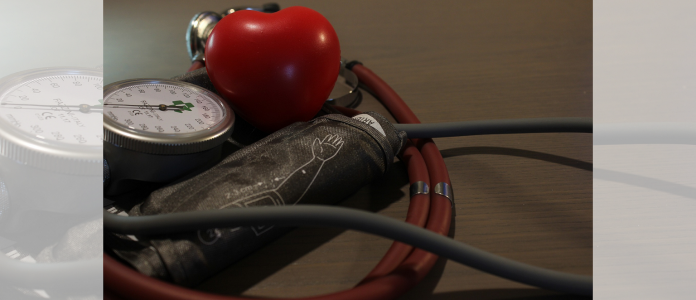South Africa’s high rate of heart attacks and strokes is largely a result of poorly managed high blood pressure – medically termed hypertension.
According to the SA Hypertension Society, half of South Africans living with hypertension don’t even know they have it.
Ryan Snodgrass, CVS1 Product Manager at Pharma Dynamics, says not knowing your blood pressure status can be harmful as it may inadvertently prevent people from seeking care when they need to.
“Hypertension often doesn’t have any symptoms, so you may think you’re fine, but that false sense of confidence could prove fatal. That’s why it’s important to go for a blood pressure screening at least once a year, especially if you’re over 40. It can be done by your GP or at a pharmacy clinic and only takes a few minutes.”
Many also don’t know what a normal or healthy reading should be.
Snodgrass explains: “Blood pressure is reported with two numbers. The top figure is your systolic blood pressure, which measures the pressure in your arteries when the heart beats. The bottom number is your diastolic blood pressure, which measures the pressure in your arteries, while your heart is resting between heartbeats. When your blood pressure is too high, your heart has to work harder to pump the blood through your body. This places tremendous strain on the heart, which could eventually lead to heart failure.”
He says to lower your risk of a heart attack or stroke, it’s critical to understand blood pressure numbers.
“Normal blood pressure is measured at or under 120 systolic over 80 diastolic. If your reading is 120 to 129 systolic and less than 80 diastolic, your blood pressure is elevated. If you fall into this category, you are likely to develop hypertension and need to start making certain lifestyle changes to keep your blood pressure in check. If your reading is consistently at or above 130 over 80, you have hypertension.”
“A hypertensive crisis occurs when your reading is above 180 over 120. Blood pressure this high can damage your blood vessels and lead to a stroke, therefore immediate medical attention is required to stabilise your blood pressure. Staying up to date with your blood pressure screenings is the best way to identify elevated blood pressure levels when there’s still time to treat it,” urges Snodgrass.
Pharma Dynamics is encouraging every adult South African to have their blood pressure tested in the lead up to World Hypertension Day (17 May) as a measure to help prevent and control hypertension – a condition which affects more than 1.5 billion people around the world.
In SA, roughly 30% of the adult population suffers from the disease, which is likely to increase, if left untreated.
Here’s what you can do to ensure a healthy blood pressure:
- Follow the Cooking from the Heart DASH diet plan. Endorsed by The Heart and Stroke Foundation of South Africa, this healthy eating plan is designed to prevent and treat hypertension. The diet includes food that are rich in potassium, calcium and magnesium and limits food that are high in saturated fat and sugars. Hundreds of heart-healthy recipes are available at My Dynamics.
- Reduce your salt intake to under one teaspoon a day. Too much sodium increases your blood pressure.
- Limit alcohol use. Drinking alcohol increases your blood pressure, therefore try stick to the recommended limits if you find it hard to abstain.
- Exercise regularly (daily if you can) for at least 30 minutes at a time.
- Maintain a healthy weight. Being overweight or obese increases your risk of cardiovascular disease and other metabolic conditions.
- Quit smoking or vaping. Both can harm your heart and blood vessels, contributing to hypertension.
- Find healthy ways to manage your stress.
- Monitor your blood pressure at home with a validated cuff-style monitor that goes on your upper arm.
- Consult your doctor about your blood pressure, who will be able to advise the best strategy for you.
- Take medicine as prescribed, while also following a healthy lifestyle.
Being proactive about your health and knowing your blood pressure numbers can be a lifesaver.






